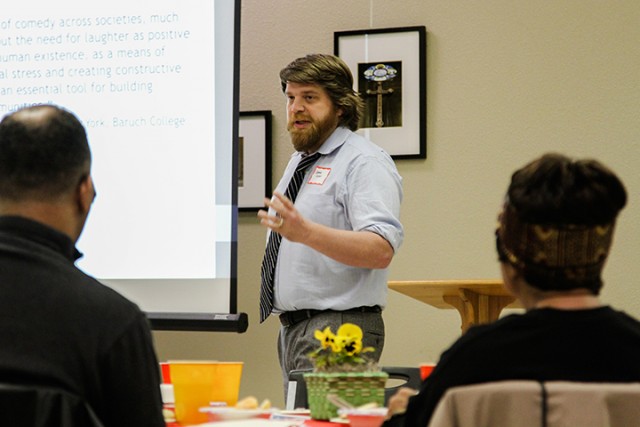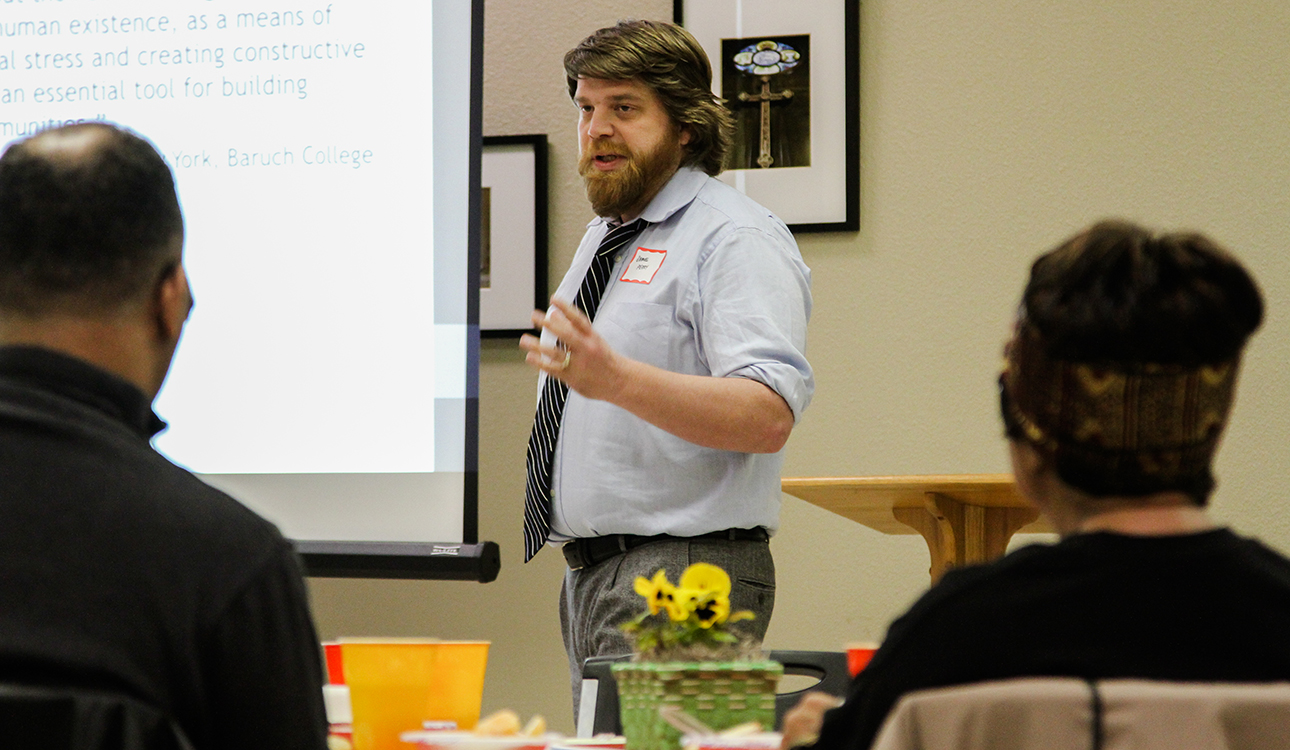
Kevin Freeman | Lariat Photographer
Shannon Barbour
Reporter
Dr. Samuel Perry, assistant professor of the Baylor Interdisciplinary Core and Honors College, and Waco community members gathered at 5:30 p.m. at St. Alban’s Episcopal Church to discuss the effects of laughing at culturally and racially sensitive jokes.
The Community Race Relations Coalition’s crowd of nearly 50 participants welcomed Perry to its quarterly meeting.
“Comedy provides a way to talk about things that remain difficult to understand,” Perry said during his discussion on navigating how to react to hearing culturally and racially sensitive jokes.
Perry welcomed comments and questions from the diverse audience, which included questions about how to educate someone after they have made a joke with an intention to harm others.
The Southeast Texas native stressed the importance of knowing the intention and context of jokes as a way to be mindful of what someone is truly laughing at.
While Perry’s lecture was a lesson on comedy, it was not a dictation on what one is allowed to laugh at. This was all in an attempt to avoid limiting a person’s free speech.
“One of our goals is to make it comfortable for people to talk about race,” said chair of the Community Race Relations Coalition board Jo Welter.
Perry’s discussion included examples of cultural and racial humor from popular culture that related to diverse audiences, such as Richard Pryor, Dave Chappelle, “All in the Family” and “The Cosby Show.”
“I live in a diverse neighborhood, which means I need to be in these conversations,” said Chateaugay, N.Y., graduate student Hannah Hanover.
The event was held in an effort to make the community more empathetic, understanding and educated about how race relations infiltrate humor and daily discourse.
“Because we’re an us -against- them society, we sometimes still laugh at people,” Welter said. “But we will achieve being able to laugh with people.”






